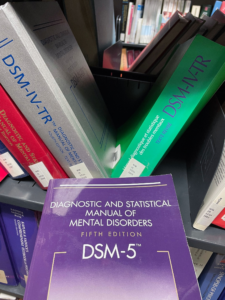 Imposter Syndrome along with other common psychological challenges and problems such as anger, low self-esteem, shame, jealousy, and stress, are not recognised as diagnosable mental health problems and would therefore not be problems you can directly receive treatment for by the NHS.
Imposter Syndrome along with other common psychological challenges and problems such as anger, low self-esteem, shame, jealousy, and stress, are not recognised as diagnosable mental health problems and would therefore not be problems you can directly receive treatment for by the NHS.
The NHS psychological services will only offer treatment for mental health problems recognised in the ICD-10 (International Classification of Diseases - 10th ed), which will include problems such as depression, Generalised Anxiety Disorder (GAD), Social Phobia, Obsessive Compulsive Disorder (OCD) and panic disorder. Whilst this is helpful if you meet criteria for any of the above problems, the problem is that a lot of psychological problems we struggle with do not fit neatly into the recognised disorders, and Imposter Syndrome is a good example of this.
If you are struggling with Imposter Syndrome you may find yourself thinking, "I'm a total fraud, and everyone's going to find out soon", you may be plagued by doubts about your abilities despite obvious success. While it might feel like a full-blown mental health problem and can have a big impact on how you live your life, here's why Imposter Syndrome isn't classified as a psychiatric disorder – and why it's still important to tackle.
What is Impostor Syndrome?
Imposter Syndrome involves patterns of thoughts and feelings characterised by:
- Persistent fears of being exposed as inadequate
- Inability to internalise success, attributing it to luck or external factors
- An overwhelming sense of feeling like a "fake"
Imposter Syndrome can lead to problematic patterns of thinking and behaviour including:
- Worrying and ruminating
- Self-critcising
- Perfectionism
- Procrastination
- Avoidance
It's incredibly common, especially in high-achieving settings, where up to 70% of individuals have been found to experience imposter feelings at some point. Imposter Syndrome has a significant impact on the individual, affecting areas such as their self-esteem, career choices, and mental well-being.
Why Isn't it a Psychiatric Disorder?
As noted above, Imposter Syndrome doesn't appear in the ICD-10 nor the Diagnostic and Statistical Manual of Mental Disorders (DSM-5), the two leading authorities on psychiatric diagnoses. Here's why:
- No Distinct Symptoms: Imposter Syndrome overlaps with symptoms of anxiety and depression but doesn't have a unique set of defining characteristics.
- Situational Nature: It's often triggered by specific achievements or environments, not a pervasive mental state.
- Focus on Thinking Patterns: Imposter Syndrome centres around "distorted thought patterns", not on broader mental and behavioural dysfunction like formal disorders.
Despite Not Being a Disorder, Its Impact is Real
Not being in the ICD-10 or DSM-5 doesn't mean Imposter Syndrome is harmless. It can lead to:
- Missed opportunities: Holding back from promotions, projects, or speaking up.
- Burnout: Overworking to prove oneself, ultimately leading to exhaustion.
- Mental Health Struggles: Anxiety, depression, and low self-worth can worsen.
Whilst the diagnostic systems have their benefits and have helped develop effective treatments, they also have their limitations and there are many critics of the diagnostic system. One of the main things that is important to focus on is the impact your problems are having on you, and if they are having a negative impact on your quality of life then it is important to address them.
What Can You Do?
Even though Imposter Syndrome isn't a disorder it doesn't mean it isn't a real issue that needs addressing, and there's plenty you can do to address it and to stop it from holding you back in life. Other posts will address steps you can take to address Imposter Syndrome.
The Takeaway
Imposter Syndrome isn't a psychiatric disorder, but that doesn't lessen its real-world impact. Understanding your Imposter Syndrome, how it operates and what is maintaining it can empower you to break free from its grip and achieve your full potential.
